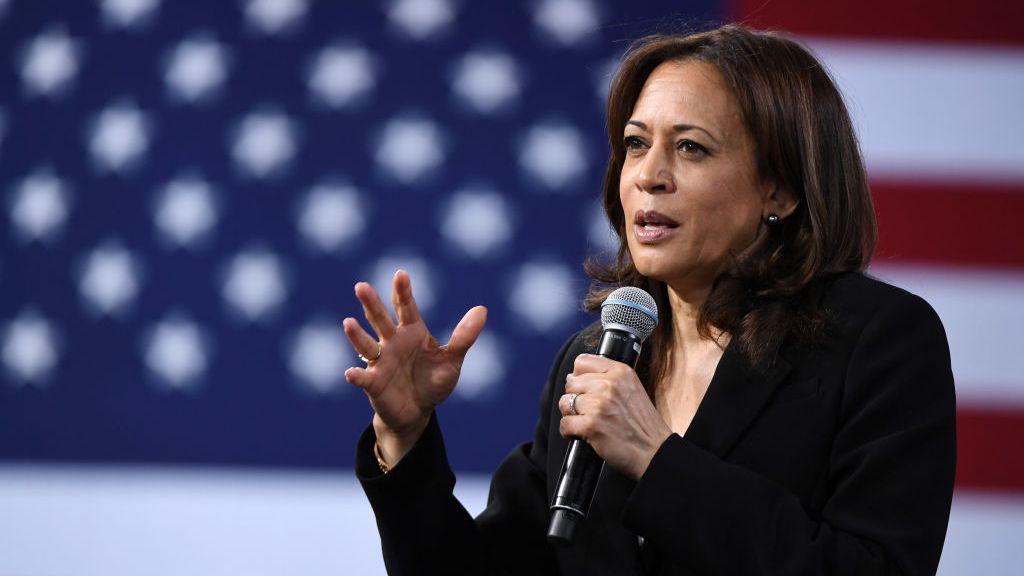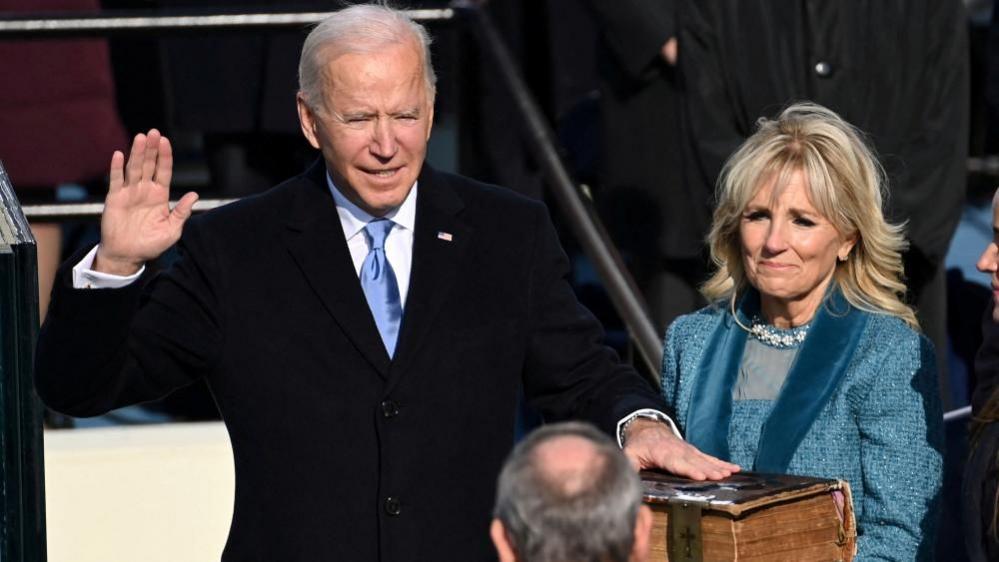Biden's pick Kamala Harris has Democrats' support. What happens next?
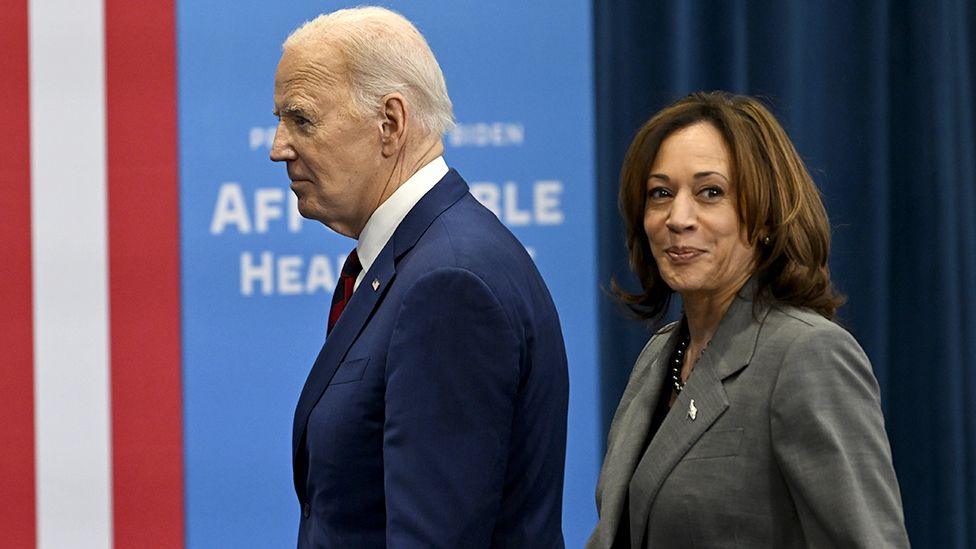
- Published
President Joe Biden has dropped out of the US election race and announced his support for Vice-President Kamala Harris as the Democratic Party's nominee.
The decision threw the party into uncharted waters, although Ms Harris appears to have quickly gained the support necessary to become the party's official candidate for president.
But nothing is yet set in stone, including the question of who she might pick as an election running mate.
Is Biden still the US president?
Yes, he has only ended his campaign to be re-elected to the White House on 5 November.
He has pledged to remain president until his successor is formally inaugurated in January.
However, Mr Biden faces calls from senior Republicans to step down now.
Is Kamala Harris now the Democrats’ presidential candidate?
It was not guaranteed that Ms Harris would simply take Mr Biden's place as the Democrats' nominee for president, despite having his backing.
However, she now appears to have an unassailable level of support within her party.
Her backers include other leading figures who might have mounted a challenge for the nomination and, crucially, from party delegates.
Delegates are people selected to represent their electoral area at the Democratic National Convention (DNC), the party's key nominating event, which starts on 19 August.
After Mr Biden announced he was dropping out of the race for the White House, hundreds of delegates whose support he had won switched to Ms Harris. A tally by the Associated Press said she passed the required number of 1,976 the next day.
Their pledges of support are non-binding until the DNC, but their votes are unlikely to change.
The situation triggered by Mr Biden's decision is unusual. The last time an incumbent US president abandoned their campaign for re-election was Lyndon Baines Johnson in 1968.
Could other candidates come forward and how will the nominee be confirmed?
As calls grew for Mr Biden to drop out of the race, a number of potential replacements emerged. But no serious contender has mounted a challenge against Ms Harris.
Something strengthening the VP's hand is the fact that a number of Mr Biden's rumoured replacements have rallied behind her. They include Michigan Governor Gretchen Whitmer, California Governor Gavin Newsom, Transportation Secretary Pete Buttigieg and Pennsylvania Governor Josh Shapiro.
Ms Harris could either be confirmed by a procedural vote at the convention or in a virtual "roll call" run by the party ahead of the gathering. The Associated Press has reported that this could happen 12 days before the convention.
Or, in the increasingly unlikely event that the Democratic Party does not unite behind a single candidate, we could see an open convention for the first time in decades. Delegates would be free to decide who to vote for among multiple candidates.
Candidates would need signatures from at least 300 delegates - no more than 50 coming from one state - for their name to appear on the ballot.
There would be an initial round of voting among the 3,900 pledged delegates, which includes voters deemed loyal to the Democratic Party.
If no candidate received a majority of votes after this first round, then more rounds of voting would take place. These rounds would include superdelegates, party leaders and elected officials, who would all cast ballots until a nominee is chosen.
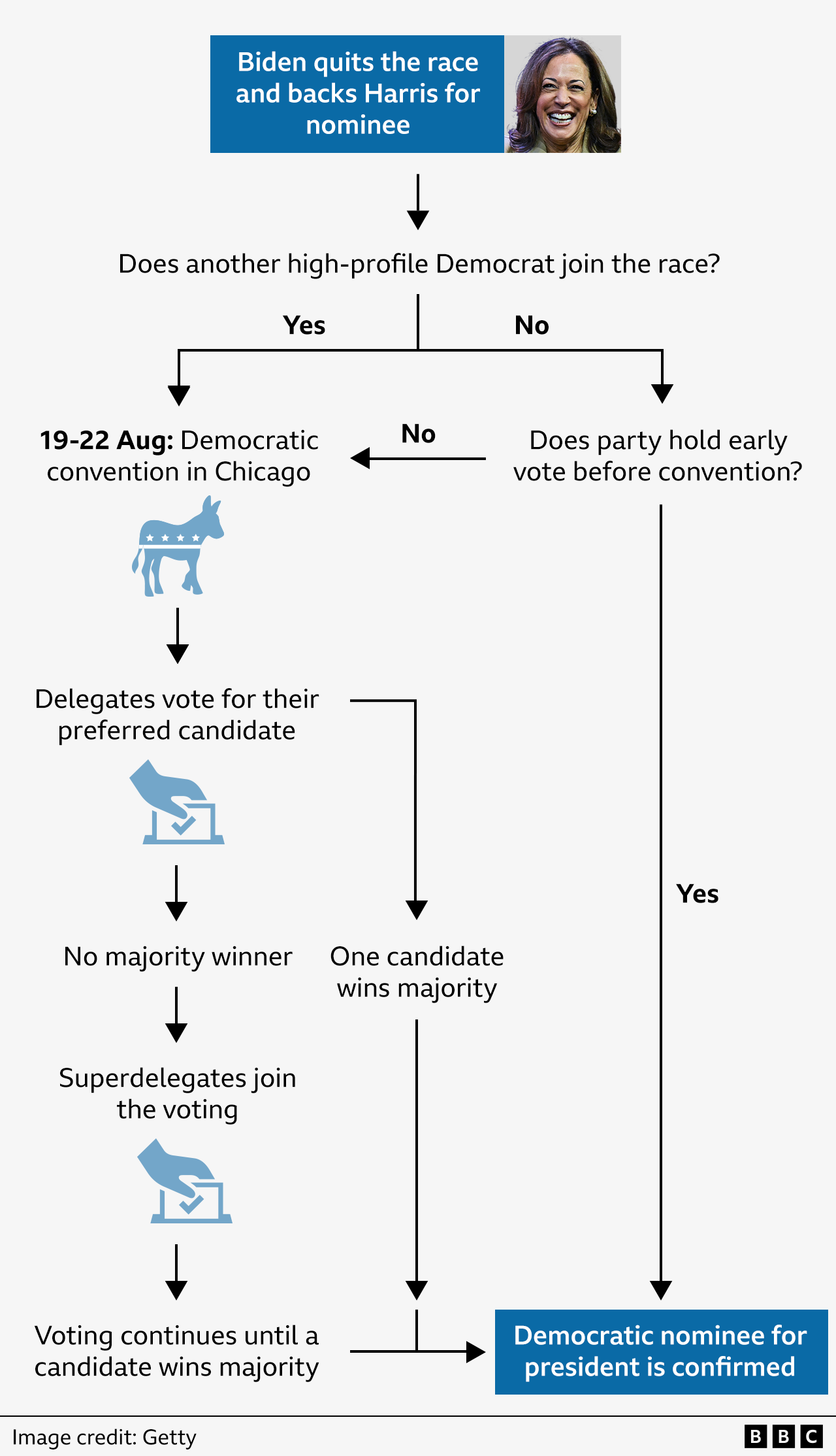
How does the winning candidate make their VP pick?
This tends to be a less formal process than the choice of presidential nominee, with the person selected by the nominee generally accepted as their running mate.
If Ms Harris does take Mr Biden’s place at the top of the Democratic ticket, some of the names being discussed as her running mate include some of the prominent Democrats now backing her, including Mr Shapiro, and others such as Illinois Governor JB Pritzker and Arizona Senator Mark Kelly.
Her running mate would become her future vice-president if she wins office.
What happens with the money pledged to Biden?
Because Ms Harris was part of the same electoral ticket as Mr Biden, campaign finance experts have suggested that the tens of millions of dollars he has amassed could flow directly to her if she is confirmed as the Democrats' nominee.
This was "not an open question,” Dara Lindenbaum, a commissioner on the Federal Election Commission, told the New York Times. “It’s very clear,” she added.
However, Republicans have signalled that they plan to challenge this transfer of funds, pointing out that Mr Biden was not yet officially his party's nominee when he dropped out of the White House race.
If the nominee turns out to be someone other than Ms Harris, it is less clear what happens to the funds accrued by the Biden-Harris campaign.

Related topics
- Published21 July 2024
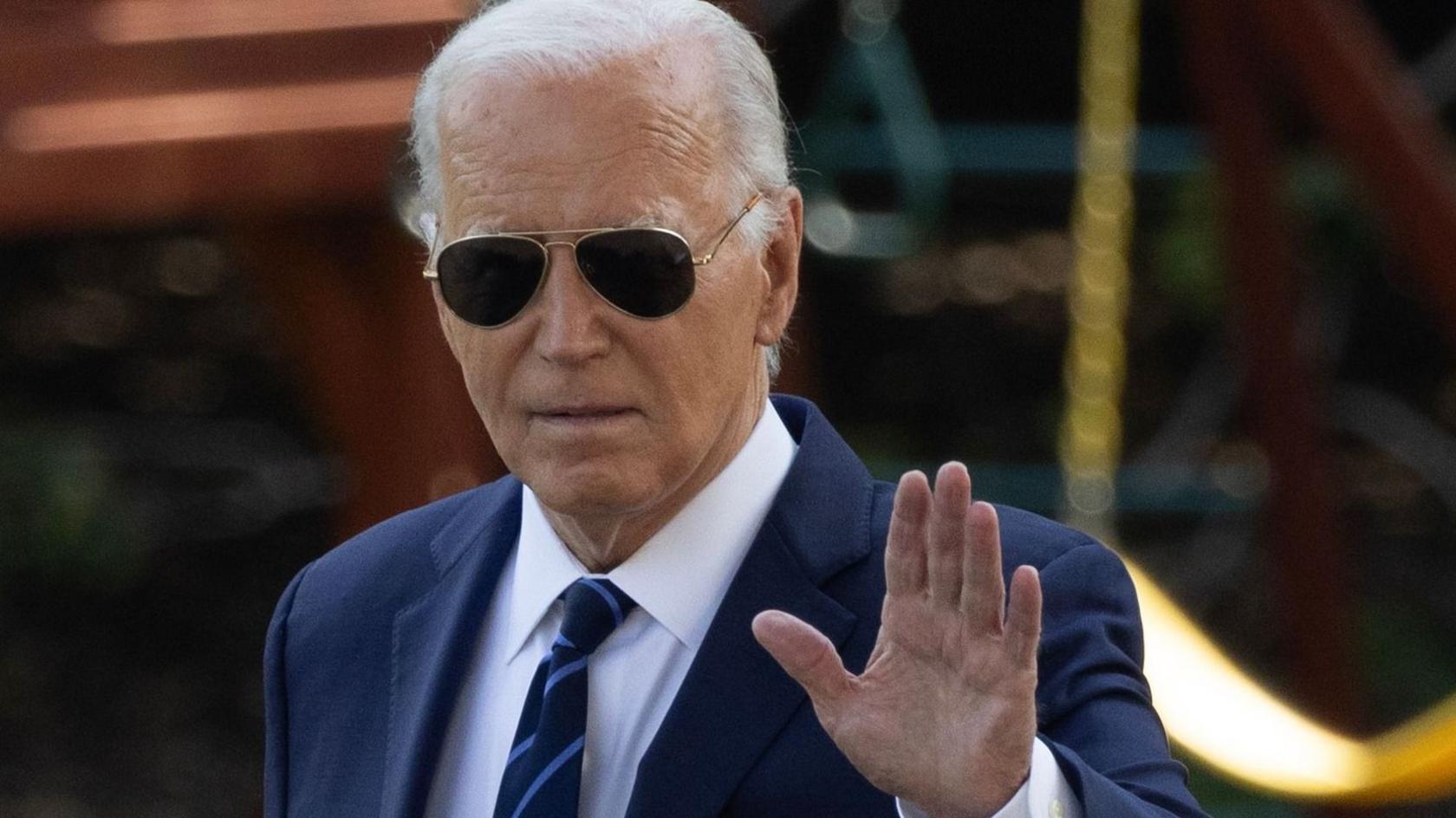
- Published30 July 2024
